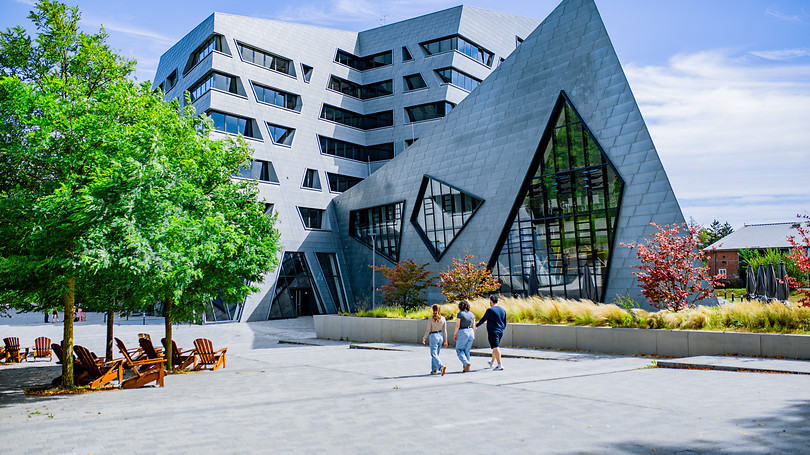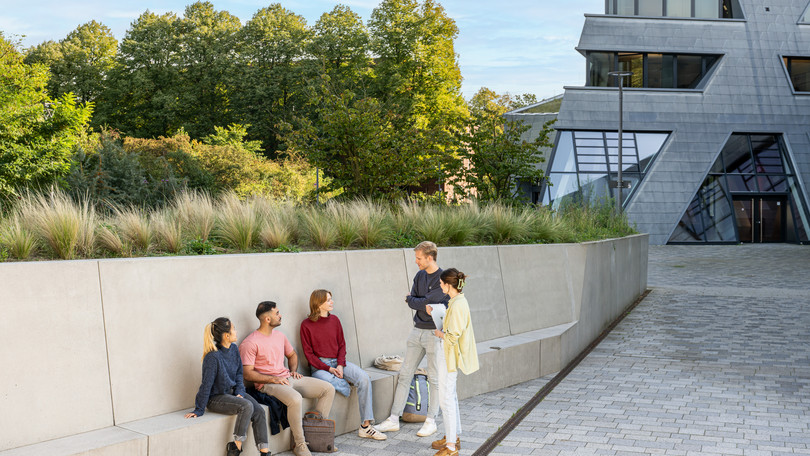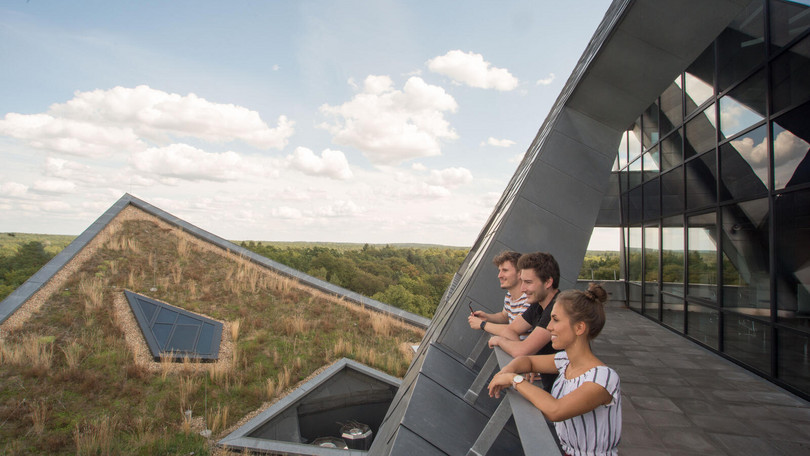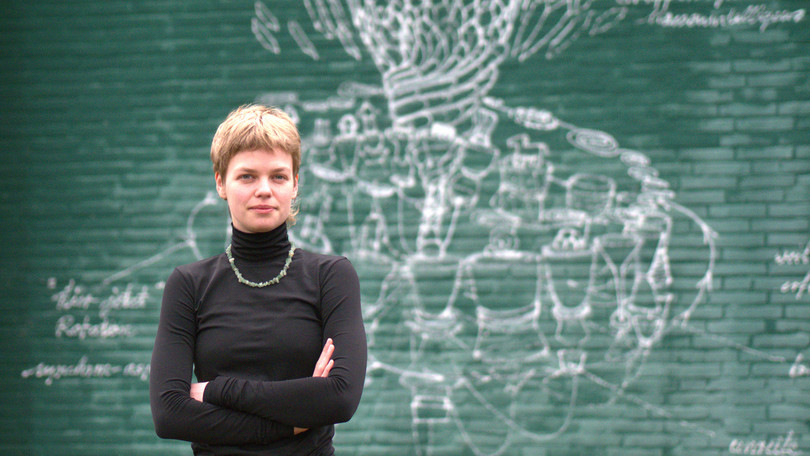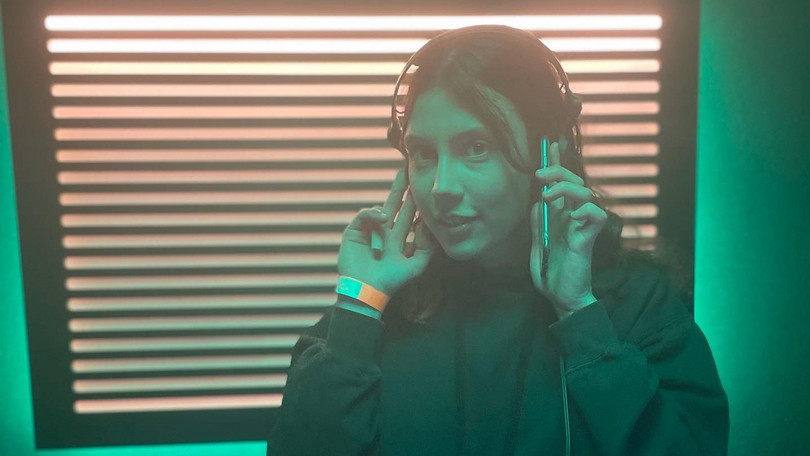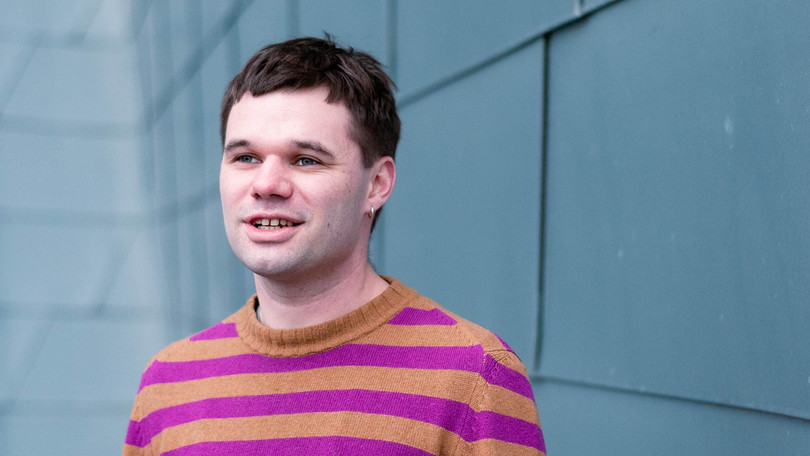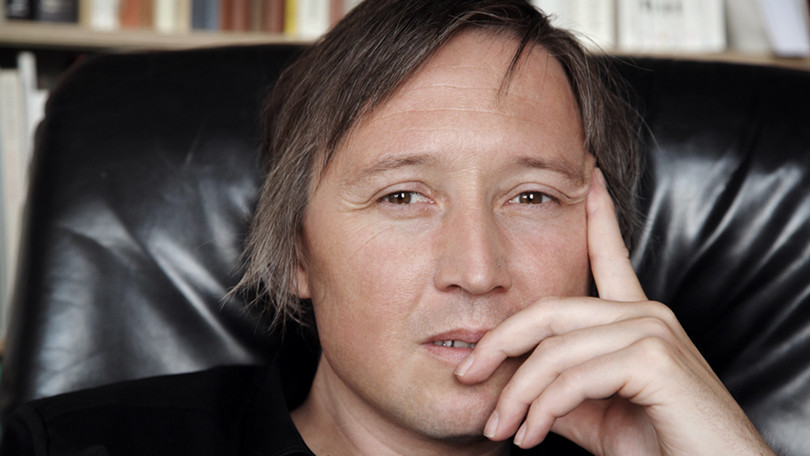Critical Studies – Arts, Theory, History
Masters Programme
How are power relations gendered?
How does capitalism organise the web of life?
How do the arts intervene in present fields of conflict?
How is the common organised?
The cultural studies MA in Critical Studies - Arts, Theory, History combines theory and philosophy with the analysis of artistic production from an historical perspective and from the perspective of the cultural history of knowledge. Through the Master of Arts programme, you acquire academic knowledge via an independent and in-depth engagement with the arts, with theory and with their historical development. Contemporary problems and issues are analysed in their complexity.
An historically grounded, critical understanding of the present is unfolded throughout the core modules: "Enlightenment, Critique, Imagination", "Difference, Subjectivity, Representation", "Capitalism, Coloniality, Globalisation" and "Ecologies, Environment, Collectivity". Current lines of conflict are analysed, and theoretical approaches and artistic interventions interrogated. Numerous elective modules and the Complementary Studies programme provide you with opportunities to deepen your interests and familiarise yourself with new fields.
The MA in Critical Studies qualifies you to work in a wide range of cultural institutions or to pursue a doctorate in Cultural Studies or in academic disciplines across the humanities.
Who is this Master's programme suitable for?
Critical Studies is ideal for graduates who want to deepen their engagement with Cultural Studies and the humanities or to broaden their disciplinary perspective, e.g. through encounters with Art History, Philosophy, History or Literature. Students who are committed to thinking as an academic endeavor, who want to develop their own interests and critical faculties, and who are open to the challenges of the present will feel particularly at home on this Master's programme.
It is aimed at students who want to develop their theoretical capacities while also having an interest in what the arts can tell us about history and about the present. With an average seminar size of 20 participants, a good ratio of instructors to students is guaranteed. Our instructors are committed to diversity, internationality and gender equality.
At a Glance
- Degree awarded: Master of Arts (M.A.)
- Application deadline: EU degrees: 1 June / Non-EU degrees: 1 May
- Highlights: Focused work on international critical theory formation and the arts; development of a multi-perspective competence in diagnosing the times on the basis of case studies; the arts, theory and history as contributions to social issues
- Is aimed at: Graduates with a degree in humanities, cultural studies or social sciences with a strong affinity for working on contemporary issues
- Type of programme: consecutive, restricted admission (entrance interviews)
- Study places: 25
- Start date: October 1
- Extent: 120 ECTS
- Duration: 4 semesters
- Language: German, individual classes in English
- Semester contribution: approx. 450 EUR
Critical Studies – Arts, Theory, History – The Programme
Content
The MA programme imparts Cultural Studies knowledge about current processes of social transformation, including those gestured towards by terms such as globality, capitalism, ecology, migration, coloniality or digitality and by the growing contestation of enlightenment, democracy and gender. It provides a diagnostic, analytical, methodical and critical approach to the problems that characterize our conflictual and complex present. Theory and philosophy provide a means for carrying out conceptual work on the socio-cultural and political conditions that articulate the arts on a material, sensual and intellectual level and thereby traverse forms and configurations of knowledge.
Arts encompasses contemporary art, modern art and literature, performative arts as well as art theory, aesthetics and art criticism, primarily from a transcultural perspective. With their claim to critique, the arts intervene in established forms of perception, their media and institutions. They are a constitutive component of a critique of the present – a critique that articulates itself along current and historical lines of conflict both sensually and materially as well as intellectually. In the Kunstraum at Leuphana University, students work together with artists to create exhibitions.
Theory encompasses philosophy, cultural theory, aesthetic theory, media theory and various approaches to critical theory: feminist, posthumanist, postcolonial and decolonial theory as well as queer theory and critical political economy. The present appears as a pivotal point at which inherited concepts and theories are enriched with new approaches that unfold an inventive power for reading and interpreting the conflictual present.
History points towards the need for a diagnostic and analytic cultural studies which engages problems through deep historical inquiry; where problems can only be understood from the perspective of how they came into being. History and geneaology open up the space in which a critique of the present becomes conceivable. They reveal the historical conditions of contemporary thought and action.
Structure
Recent seminar topics have included: Extractivism in political philosophy and contemporary art / Ownership and property in art and cultural theory / The motif of the master-servant dialectic in the history of philosophy / Subject critique in contemporary art / Critique of neoliberal subjectivity / Feminine desires: art and politics / Production and reproduction: (female) labour in art and cinema / Critique of environmentalism / Scenes of critique: theory, history, practices / History of ecology.
Here you can find further information on the course content of the Master's programme Critical Studies - Arts, Theory, History.
Specifics
The cultural studies MA programme Critical Studies - Arts, Theory, History is curated thematically: the major lines of conflict of the present are explored historically, systematically and methodically from different perspectives, with arts, theory and history being interwoven in 10 CP modules.
The programme in Critical Studies is unique in this form in the German-speaking world. It resembles the approach taken by a number of prominent international programmes in Critical Studies and attempts a pronounced renewal of cultural studies. It sees itself as an interdisciplinary degree programme with a focus on the 20th and 21st centuries. Research and teaching focuses on philosophy, cultural theory, art history, history of knowledge and literary studies, incorporating contemporary theories and insights from queer, decolonial, critical race, black and media studies. In addition, Leuphana University is one of the few German universities to have its own art space (Kunstraum). Exhibitions, workshops and performances are organised here in collaboration with students. Excursions to exhibitions are a regular part of the programme. There is a permanent co-operation with the Ca' Foscari University in Venice, with an excursion to Venice taking place once a year, in addition to shorter excursions to exhibitions within Germany.
Teaching and research environment
The programme is based at a very lively campus university and in a research-intensive environment. For instance, the Cultures of Critique research training group (funded by the German Research Council, DFG) shapes research activities on campus and contributes to its internationalization. Through lectures, workshops and conferences, students can participate in a sophisticated research culture. Students are welcome to attend public events organised by the Center for Critical Studies and the Leuphana Institute of Advanced Studies in Culture and Society. This research environment offers students an excellent opportunity to get to know international academics and cutting-edge scholarship from across the fields of cultural studies, the humanities and the social sciences. As a medium-sized university in the Hamburg metropolitan region, Lüneburg is ideal for students who want to concentrate on their studies without missing out on the opportunities provided by proximity to a large city.
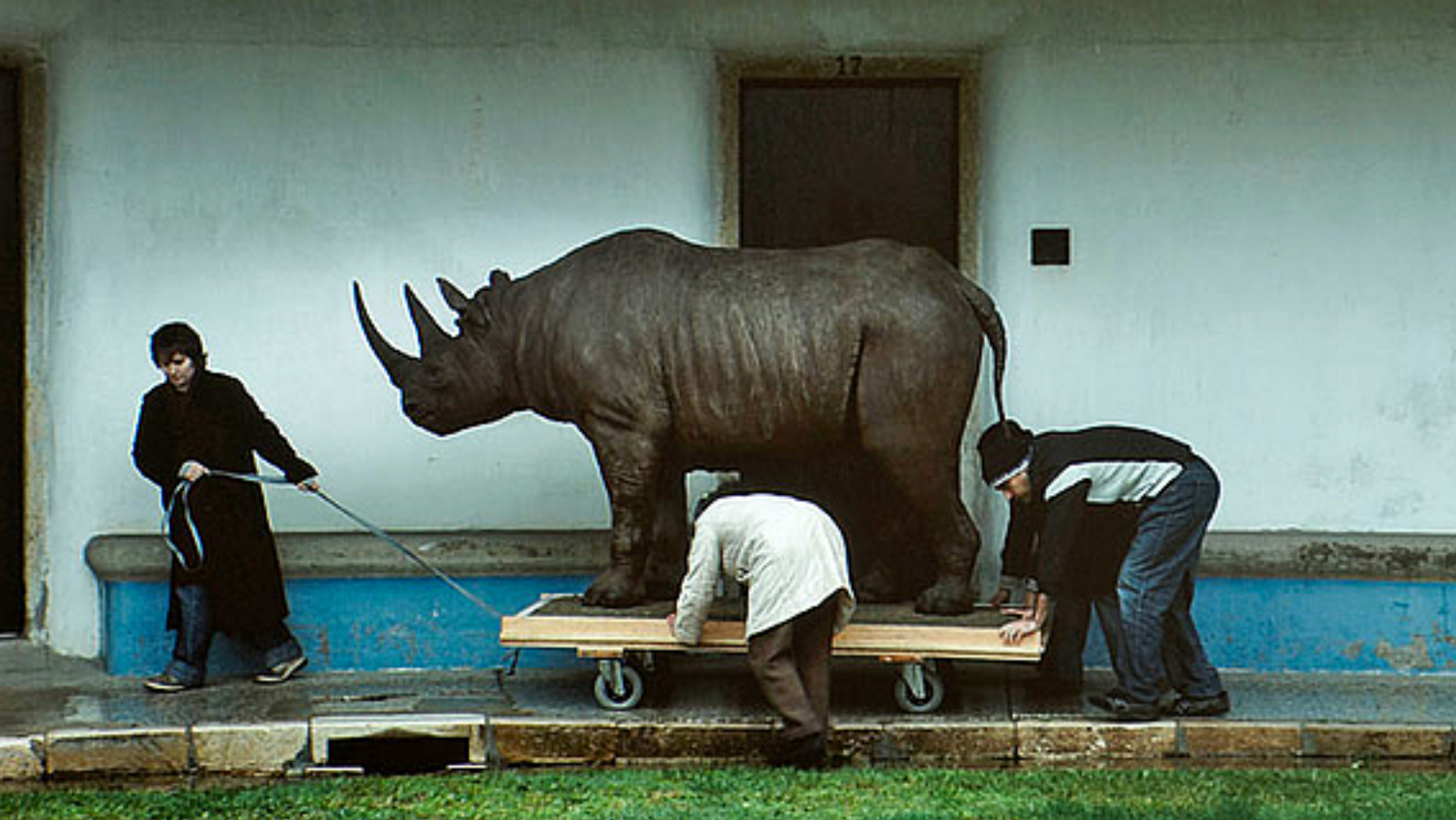 ©Xavier Téllez. Mit freundlicher Genehmigung des Künstlers.
©Xavier Téllez. Mit freundlicher Genehmigung des Künstlers.
Study Regulations and Subject-Specific Schedule
The following link provides access to documents which set out the general conditions for examinations, an overview of the curriculum, as well as detailed and legally binding regulations.
General Assessment Regulations and the Subject-Specific Schedules
Teaching Personnel
Programme Director
- Prof. Dr. Erich Hörl
Deputy Programme Director
- Prof. Dr. Susanne Leeb
Most of the core modules on the Critical Studies – Arts, Theory, History cultural studies programme are taught by: Prof. Dr. Erich Hörl (Media Culture and Media Philosophy), Prof. Dr. Sven Kramer (Modern German Literature/Literary Cultures), Prof. Dr. Susanne Leeb (Contemporary Art), Prof. Dr. Lynn Rother (Provenance Studies), Prof. Dr. Roberto Nigro (Philosophy, with a focus on continental philosophy), Prof. Dr. Beate Söntgen (Art History), Dr. Ben Trott (Visiting Professor, Political Philosophy and Queer Studies), Prof. Dr. Christina Wessely (Cultural History), Prof. Dr. Serhat Karakayalı (Migration and Mobility Studies), the Professorship for Practical Philosophy, and the Professorship for Transcultural Art History.
The integration modules and electives are taught by various lecturers from the School of Culture and Society.
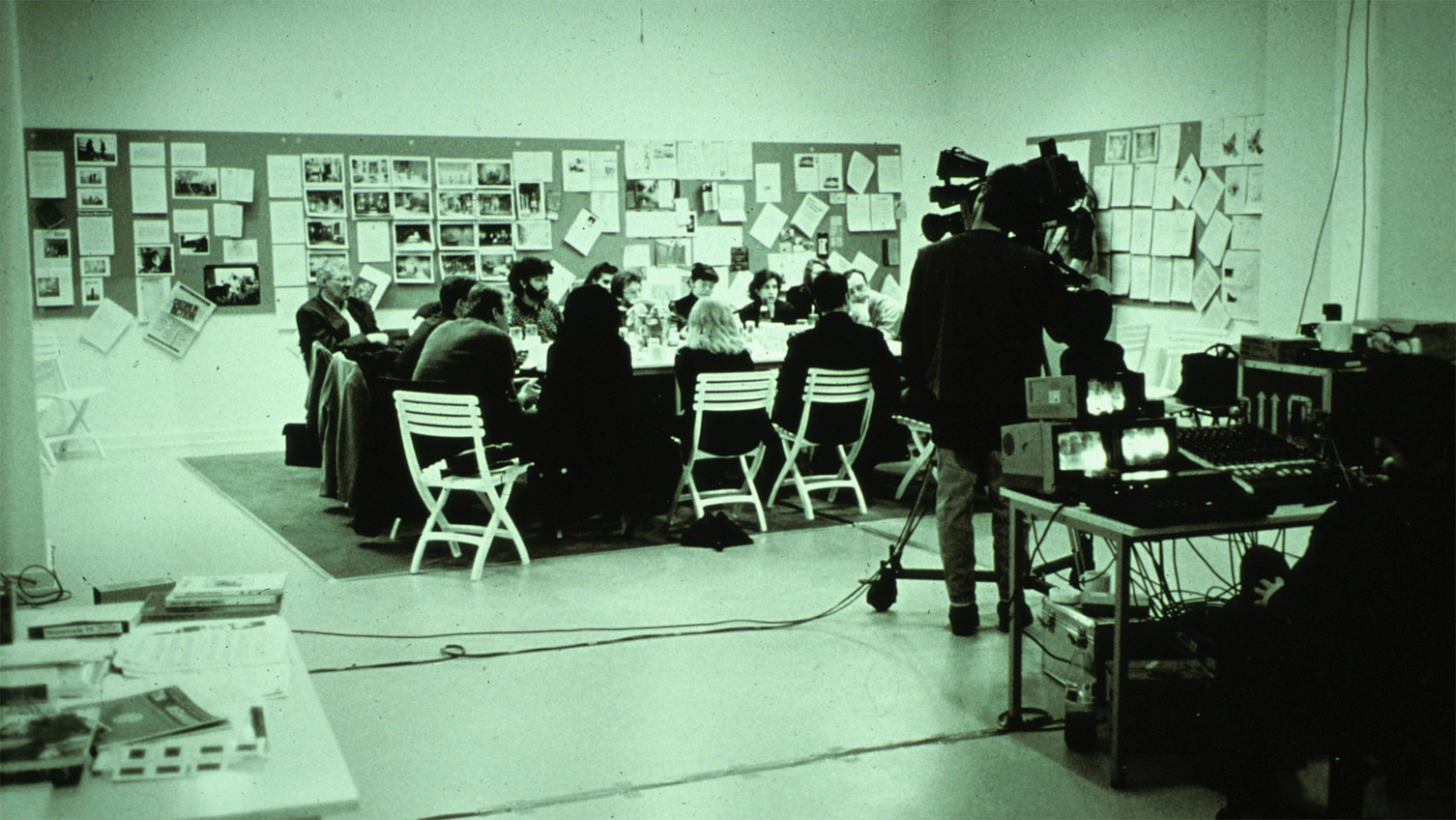 ©Michael Schindel
©Michael Schindel
Studying Abroad
You can integrate a stay abroad into your studies in the 3rd or 4th semester, either as part of the Erasmus+ programme or with one of our non-European partners. There are around 30 exchange programmes from which Critical Studies students can choose. You can find more information on the partner universities on the pages of the International Center.
Career Prospects
Students pursuing an MA degree in Critical Studies - Arts, Theory History are prepared both for an academic career, whether at university or research centre, and for careers in the fields of culture, art, media and the creative industries. In all these fields – which belong to sphere of cultural production in the broadest sense – key competences in cultural analysis, diagnosis and theory are required, as is a capacity to articulate these competences clearly. Publishing houses, museums, exhibition companies, theatres, journalism, print and online editorial offices as well as cultural festivals are just a few examples. In addition, a growing field of professions beyond the sphere of cultural production also require a capacity for critical reflection as well as clear and confident communication, especially when it comes to addressing problems in a complex and constantly changing world. This includes professions in civil society, in political organisations and foundations, and in the private sector.
With the Doctoral Track, particularly research-interested and well-qualified MA students have the opportunity to receive simultaneous admission to doctoral studies and enroll in the doctoral programme during the first semester of their Master's programme. This allows students to engage in scholarly research at an early stage, planning their Master's and doctoral studies in ways that consciously build on each other. Doctoral students in the Doctoral Track programme are members of one of the Faculty's doctoral research groups in cultural studies.
On the Leuphana Career Service website, you will find numerous job offers for student jobs, internships, career entry, or topics for your thesis from companies, research institutions, and non-profit organizations that are specifically aimed at Leuphana students and graduates. In addition, you will find job offers and student jobs within Leuphana University.
Impressions of the Programme
Programme director Prof. Dr. Erich Hörl on the Masters in Critical Studies
Doctoral Track
As a student in our programme, you have the opportunity to start your doctorate early via the Doctoral Track.
Thus, you to become part of the scientific community of our doctoral research groups at an early stage, giving you the unique opportunity to combine your Master's and doctoral studies and, with your doctorate in sight, to obtain your Master's degree en-route.
Admission Requirements and Application
You can find all information about the admission and requirements, the application and the selection procedure on our "Admission and Requirements" page.
As part of the selection process for the MA Critical Studies, you will be invited to an interview on 20 August 2025. The purpose of the interviews is to gain a personal impression of your interests and motivation, as well as your suitability for the MA Critical Studies. In addition, the interview offers you the opportunity to gain up to 18 additional points in the selection process and thus improve your chances of being accepted to study in Lüneburg. The 15-minute interviews will be conducted online. Invitations to the selection interviews will be sent by email approximately one week before the interviews. No preparation is required.
Additional Links
International Students
This study programme matches your interests? Then you will find further information for prospective international students on residence and social matters, such as visa, residence permit, health insurance or finding accommodation, on the following pages.
Please note that the information for incoming exchange students and international degree-seeking students differs slightly.
Contact and Counselling
First contact point
The Information Office (Infoportal) is your contact point for
- general information on the application procedure
- initial questions about the study programmes offered at Leuphana
- making an appointment with the Graduate School Student Counselling Service.
Ask a student
You can get answers from a student perspective by sending your questions to Luise Fürst, current student in the Master's programme in Critical Studies.
Information Office
Building 8, Ground Level
Fon +49.4131.677-2277
studierendenservice@leuphana.de
Campus opening hours
Mon - Thu 9.00 am - 4:00 pm
Fr 9.00 am - 12 noon
Student Counselling
To make an appointment with our Student Counselling Service, please use our booking tool on our website.

